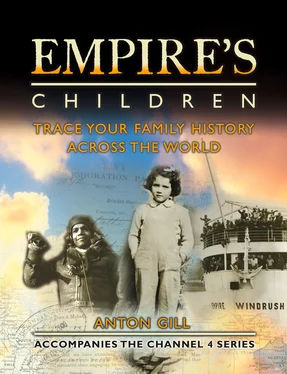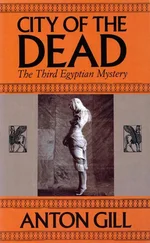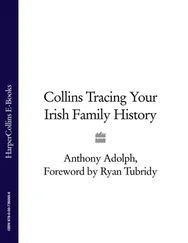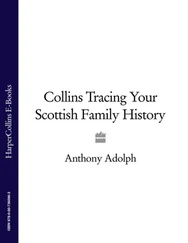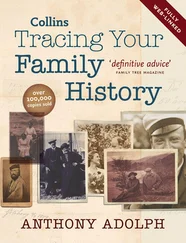Chris’s next stop was Nelson Island, off the coast of Trinidad. Nelson Island was the disembarkation point and quarantine station for the new indentured labourers, who were kept there for ten days. Chris visited the barracks, originally built by slaves in 1802, which were created to house the Indians, like Chris’s grandfather. The barracks were the first solid structure to be erected on Trinidad or Tobago. He found it an eerie and unsettling place, now inhabited by vultures and adorned with graffiti saying ‘Fock da British’. Once they had been certified at the barracks as fit and well, the labourers would be sent from Nelson Island to work on one of Trinidad’s 300 plantations.
In total, it is estimated that 2.5 million Indian peasants left their villages and were shipped around the Empire under the scheme to work as cheap labour in places they had never even heard of, including Mauritius, British Guiana and East Africa as well as Trinidad. Half a million of these so-called ‘coolies’ were brought to work on the sugar, coffee and cocoa plantations of the Caribbean. Although these labourers were not slaves and had signed contracts of employment, many were illiterate and could not read these contracts. It was not uncommon for people to be tricked into becoming labourers. Chris met ninety-six-year-old Nazir Mohammed who was brought to Trinidad as a baby by his mother, an indentured labourer. She was tricked by Indian recruiters who told her they were taking her to find her missing husband but instead took her and her baby to the labour depot. Nazir then grew up on a Trinidad plantation as a child labourer. He described conditions on the estate where he spent twelve years as being akin to slavery. The workers were forced to work and were whipped by the foreman.
Chris then travelled to the Bien Venue Estate where his great-grandfather had laboured in the early twentieth century. Bishnia spent five years there, unable to miss a day’s work and forbidden from leaving the estate. Professor Kusha Haraksingh showed Chris round the plantation. He painted a picture of life on the estate but also explained the wider historical context. In the seventeenth and eighteenth centuries India had had a booming cotton and textile industry but the British had plans to make Manchester the textiles capital of the Empire. By imposing increasingly heavier tariffs on Indian imported cotton goods they made it impossible by the nineteenth century for India to compete with untaxed British goods. The poverty this gave rise to may well have forced Bishnia into becoming an indentured labourer. As Chris concluded, his fellow Mancunians managed to displace his great-grandfather. History had come full circle.
Having discovered how his great-grandfather came to Trinidad as an impoverished labourer, Chris was curious to know how, in just one generation, his grandfather, Harry, achieved the wealth and success he has heard so much about. He decided to enlist the help of his eldest uncle, Jameel. He arranged to meet him at the family’s old house in Stone Street in Port of Spain. Chris was amazed by how grand the house is and even more surprised to find out there are servants’ quarters at the back.
Harry had always been ambitious. He had joined the British Customs Service but in 1959 decided to leave and see if he could make a living out of his favourite pastime: gambling. Jameel took Chris to one of the racetracks where Harry made his money and raced some of his own horses, some imported from England and Ireland. Jameel recalled that while Harry made sure his horses enjoyed air-conditioning on hot days, the family had no such luxury! Despite the grand house, two betting shops and owning his own race horses Harry had ambitions to move to Britain. Jameel revealed that Harry was motivated by two reasons: his children’s education and a desire to be at the heart of the racing empire in Britain. Chris’s ancestors were all Hindu and Harry’s brother Lal in particular was a devout Hindu. Chris pondered that with the same fervour Lal embraced his religion, Harry had embraced capitalism.
Chris wanted to find out more about Harry. The impression he was getting was of a very determined and strong-willed patriarch who decided his family’s future. He went to see his eldest aunts, Farida and Shaira, and great-aunt Dulcie, who remember Harry well. They agreed that Harry was an intelligent, disciplined and authoritarian figure. Failure to do homework properly earn ‘licks with the belt’. Harry’s iron grip extended beyond his children’s education. His aunt Farida told Chris how she had married a Calypsonian singer called The Mighty Robin. But Chris was shocked when Farida revealed that Harry refused to meet Farida’s fiancé. He didn’t want one of his children marrying someone who was black. His aunts pointed out that there had always been racial tension between the Blacks and the Indians in Trinidad which still exists today. It made Chris wonder if there was more to Harry’s plans to emigrate to Britain as Harry moved the family in 1965, three years after independence when a predominantly black government took over from the British.
In order to place this in context Chris went to see Professor Brinsley Samaroo from the University of the West Indies. Professor Samaroo explained to Chris that the island’s ethnic tensions originated from the time when the British replaced the freed African slaves with Indian indentured labourers. It was another example of the British policy, which they practised throughout the Empire, of Divide et Impera, or Divide and Rule. These ancient antagonisms came to a head at independence and a considerable number of Indo-Trinidadians left at that time.
At the end of his journey Chris can see how his family’s history has been shaped by the British Empire, causing his great-grandfather to leave India and his grandfather to leave Trinidad. But he still has one more question. How did the family end up in Manchester and what sort of welcome did they receive in Britain?
Back in Preston Chris went to see his aunt Patsy. She was the eldest of Harry’s daughters to emigrate and was thirteen when she arrived in Britain. She had been excited about moving but was bitterly disappointed by the reality. Patsy faced enormous prejudice and found herself friendless. Chris’s grandfather also found Britain unforgiving. He had hoped to open a betting shop in London but, before he could achieve his ambition, almost certainly hindered by the obvious racism there, had gambled all his money away. After three years in London the family had to rely on the Catholic Church, who helped immigrants find cheaper housing in other parts of England. The family made its final move, to Moss Side.
With his dreams of opening a betting shop gone, Harry put all his energy into his next great love, cricket. In 1972, with kit paid for from his winnings on the horses, Harry founded the Moss Side cricket team, the first black side in the area. The team was made up of blacks, Indians, and one white man. Chris’s dad, Mickey, who played on the team, gathered together the former members for the first time in twenty years. The players reminisced about their games as well as the racism they encountered from both umpires and other players, and life in 1970s Britain. Leroy Hanley recalled how he and his friends were denied entry to clubs because of their Afros, which were claimed to be a fire hazard.
For Chris the journey into his family’s past was illuminating. He now felt that he knew where he came from, something he never really understood before. As he concluded, ‘whether my dad and my family were welcome here or not, I’m distinctly British and this is my country… If people still have racist attitudes, whether they like it or not, the Empire has affected this country in such a way that I am British and this is my home, and that’s not going to change. It is now the responsibility of my generation to run the Empire!
Читать дальше
